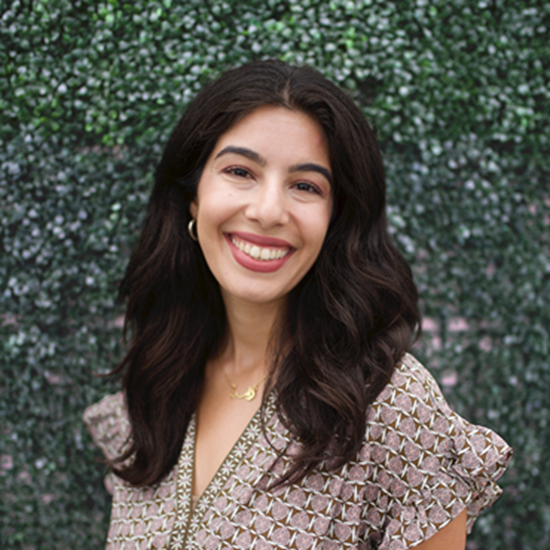Announcing the Inaugural Palestinian Community Leader In Residence at UC San Diego
Please join us in welcoming the Department of Ethnic Studies at UC San Diego's inaugural Palestinian Community Leader In Residence, Ramah Awad.
Ramah Awad
Ramah Awad is a Palestinian-American community organizer and advocate based in San Diego, California. She graduated with honors from Stanford University in 2017 with a Bachelor of Arts in History and a minor in Anthropology. Her honors thesis examined the historical and legal conditions of Palestinian refugees displaced from Syria, drawing from months of field research that she conducted abroad. Her research and student activism were recognized through a Stanford Award of Excellence.
Since graduating, Ramah has published articles on topics including Arab-American feminism, Palestinian statelessness, and youth organizing. Over the past decade, she has worked with various organizations including human rights agencies in Istanbul and Capetown, advocacy organizations such as the American Friends Service Committee, and the UN Higher Commissioner for Refugees in Geneva.
Ramah currently serves as the Executive Director of Majdal, the Arab Community Center of San Diego, a local resource hub for refugee and immigrant communities. Beyond her community leadership, she continues to find joy and rootedness in her heritage as a member of the House of Palestine's "dabkeh" dance troupe.
Majdal, the Arab Community Center of San Diego, is a resource and community hub with a mission to service, uplift, and build power for San Diego’s Arab refugee and immigrant communities. Formally established in 2018, the center’s work emerged from volunteer efforts to respond to the influx of Syrian refugees resettling to San Diego in 2016. The Majdal Center’s services, programs, and campaigns intersect across four programmatic areas: youth education and leadership; community health and wellbeing; economic empowerment; advocacy and policy.
About the Inaugural UC San Diego Palestinian Community Leader in Residence Program
To support the academic and leadership possibilities of Palestinian and Palestinian American Studies at UCSD, the Department of Ethnic Studies will be hosting a local, recognized community leader to serve for one academic year as our inaugural Palestinian Community Leader In Residence to support the work of building stronger relationships between UC San Diego and Palestinian and Palestinian American communities. This new program will also introduce students, faculty, staff, and community to Palestinian leaders who will teach, present, and meet with administrators, faculty, staff, and students about a key theme or topic every academic year for a minimum of one academic quarter and up to three total quarters. The program will include an opening and closing luncheon in addition to monthly events on and off campus that foster better understanding of Palestinian and Palestinian American communities nationally and internationally. This will be the first program of its kind at the University of California and will build on the strengths, knowledges, and civic engagement and public policy issues being addressed at local, national, and international levels.
The Palestinian Community Leader in Residency Program Aims to:
- Celebrate, Acknowledge and Honor Palestinian and Palestinian American knowledge systems and topics in Public Policy and Community Engaged Leadership and Service
- Center Palestinian Leadership practices and curriculum development
- Highlight the diversity of Palestinian and Palestinian American identity and affirm Palestinian and Palestinian American students, community members, staff, and faculty
- Raise the awareness and understanding of Palestinian and Palestinian American culture with University staff and faculty and students
- Foster relationships between Palestinian and Palestinian American communities and the University
- The Palestinian Community Leader-in-Residence will give 1 presentation per quarter to the UCSD community. The Leader should have a demonstrated record of public and civic engagement with local, regional, and ideally with national Palestinian Community organizing efforts.
